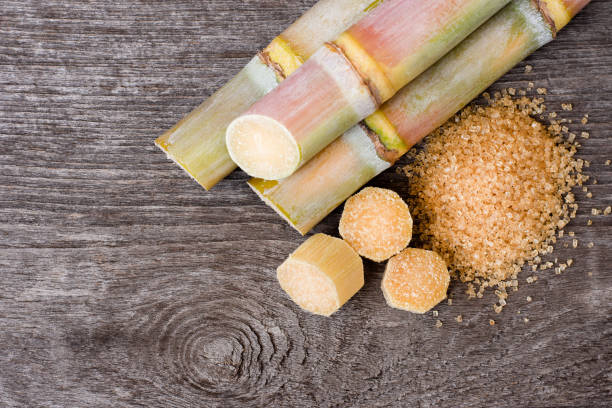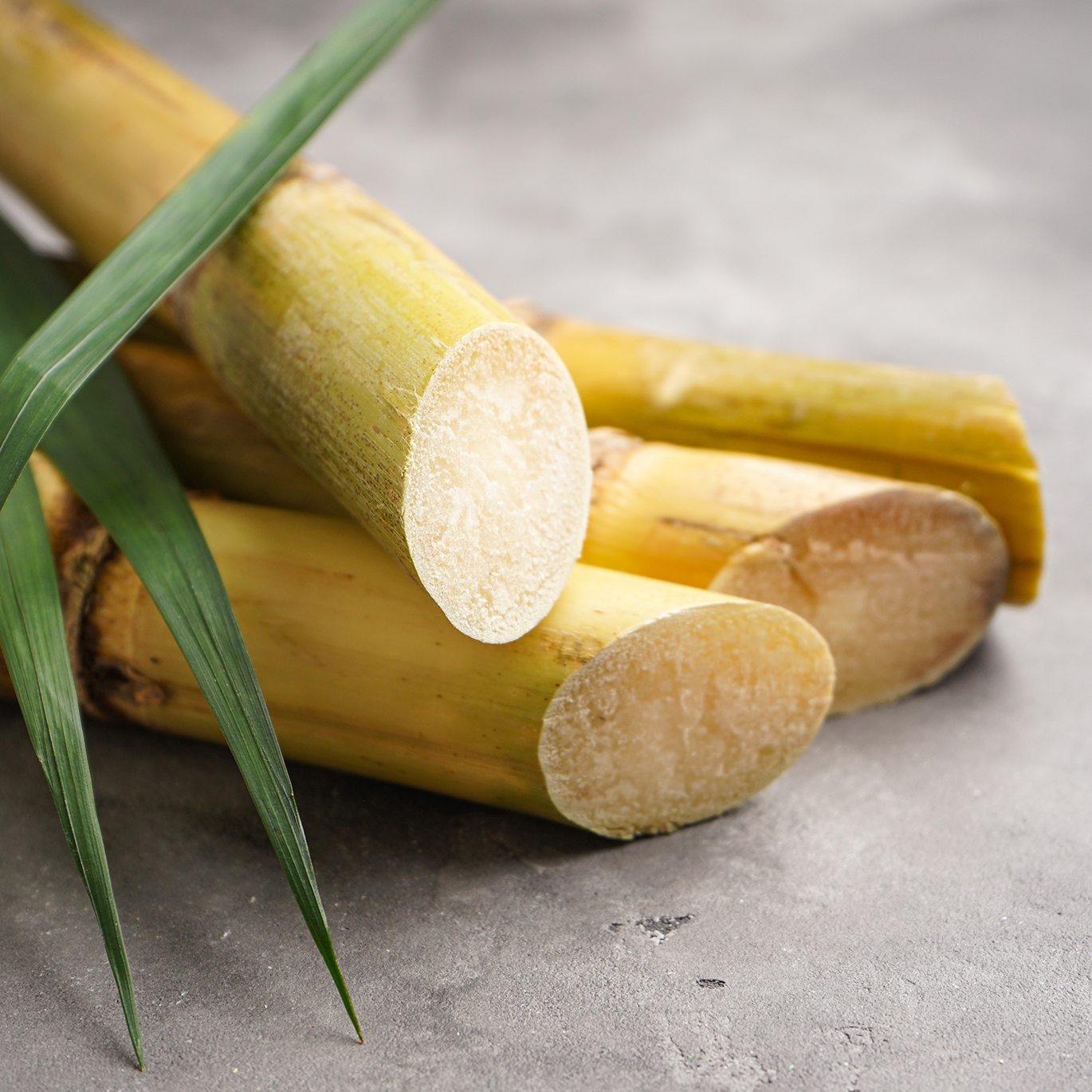Why Sugar and Cane Are Key Ingredients in Many Popular Beverages
Why Sugar and Cane Are Key Ingredients in Many Popular Beverages
Blog Article
Why Walking Cane Sugar Handling Chemicals Are Essential for Modern Sugar Refining
The duty of cane sugar processing chemicals in modern sugar refining can not be overemphasized, as they are important to improving both the efficiency of extraction and the overall quality of the end product. Agents such as phosphoric acid and specific flocculants are employed to eliminate impurities, causing sugar that not only fulfills consumer assumptions but also complies with industry criteria. The implications of these chemicals extend beyond quality, touching upon market dynamics and ecological factors to consider. sugar and cane. This increases vital inquiries about the sustainability of such practices and their effect on the future of sugar production.
Function of Processing Chemicals
The efficiency of walking stick sugar processing pivots considerably on the tactical application of handling chemicals. These chemicals play an essential duty in boosting the efficiency and quality of sugar removal and refining. From the preliminary phases of juice removal to the final filtration actions, handling chemicals assist in numerous critical procedures.
In the removal phase, chemicals such as phosphoric acid and calcium hydroxide are employed to maximize the information procedure, aiding to get rid of contaminations and suspended solids from the walking stick juice. This not only improves the return yet additionally makes sure the quality of the end product. Furthermore, agents like flocculants help in the quick settling of contaminations, thereby improving the general procedure.
As the processing advances, chemicals are used in decolorization and formation phases. Triggered carbon and ion exchange resins serve to remove color and smell, guaranteeing that the refined sugar fulfills customer quality requirements. Ultimately, the role of processing chemicals prolongs beyond functional efficiency; they considerably affect the sensory features of the last product, contributing to market competition. Therefore, the careful choice and application of these chemicals are essential for attaining optimum outcomes in cane sugar handling.
Key Kinds Of Chemicals
Walking cane sugar handling relies upon a selection of vital chemicals that assist in each stage of manufacturing. These chemicals play crucial roles in clarifying, bleaching, and detoxifying the sugar extracted from cane.
One key category of chemicals includes flocculants, such as polyacrylamide, which help in the information process by promoting the gathering and settling of impurities. In addition, calcium hydroxide is usually utilized to neutralize level of acidity and help in the elimination of non-sugar components.
Whitening representatives, such as activated carbon and sulfur dioxide, are utilized to decolorize the syrup, leading to a more clear final product. These chemicals aid remove shade substances that might influence the sugar's look and marketability.
Additionally, phosphoric acid works as a pH regulator throughout the processing stages, ensuring optimum problems for the chemical tasks associated with sugar removal and purification.
Various other crucial agents consist of edta (ethylenediaminetetraacetic acid), which chelates steel ions that can catalyze unwanted reactions, and salt hydroxide, which helps in pH control throughout the refining procedure. Collectively, these chemicals enhance efficiency and make certain a high-grade cane sugar product.
Advantages for Sugar High Quality
Usually ignored, making use of specific handling chemicals significantly enhances the general top quality of cane sugar. These chemicals play a crucial function in refining procedures, ensuring that the end product fulfills rigid market criteria for pureness and preference.

Additionally, refining chemicals aid in attaining a constant granulation and texture, which are critical for customer approval. By controlling the crystallization process, these chemicals make sure that the sugar crystals create consistently, resulting in go to this site an extra enticing product that liquifies well in various applications.
Additionally, using these chemicals can boost the life span of cane sugar by minimizing moisture absorption and microbial growth. Overall, the critical application of processing chemicals is vital for providing top notch walking stick sugar that meets consumer assumptions and industry needs.
Ecological Effect Considerations

Furthermore, the energy-intensive nature of sugar refining, intensified by chemical usage, commonly results in boosted carbon exhausts. check my source This adds to environment adjustment and elevates concerns regarding the sustainability of present refining techniques. In addition, the sourcing of these chemicals may entail practices that endanger biodiversity, such as monoculture farming, which minimizes the durability of farming environments.

To mitigate these effects, sugar refiners are progressively discovering lasting alternatives and embracing best methods that decrease chemical usage. Implementing extensive environmental administration systems can help make sure that the refining procedure lines up with environmental requirements and promotes biodiversity. Inevitably, a well balanced technique that focuses on both sugar quality and environmental stewardship is essential for the long-lasting feasibility of the sugar market.
Future Patterns in Refining
As the sugar sector comes to grips with the ecological difficulties connected with typical refining techniques, ingenious methods are emerging to improve both performance and sustainability. One considerable trend is the adoption of environment-friendly chemistry concepts, which focus on making use of non-toxic, naturally degradable processing chemicals. This shift not just lessens environmental impact however additionally addresses customer demand for cleaner production techniques.
One more appealing advancement is the application of sophisticated filtering modern technologies, such as membrane layer splitting up and adsorption processes. These strategies boost the clearness and quality of the sugar while lowering the quantity of wastewater created during refining. Additionally, the integration of digital innovations, including IoT and AI, is transforming operational effectiveness by enabling real-time tracking and anticipating upkeep, thus reducing source waste.
In addition, making use of spin-offs from sugar refining, such index as bagasse and molasses, is gaining grip. These materials can be exchanged biofuels or value-added items, adding to a round economy within the industry. Jointly, these fads indicate a change towards even more lasting practices that not just boost operational effectiveness but likewise straighten with international sustainability objectives, guaranteeing the future feasibility of sugar refining.
Final Thought
Walking cane sugar handling chemicals are vital in contemporary sugar refining, considerably enhancing the efficiency and high quality of sugar extraction. The strategic usage of these chemicals not just enhances the purity and flavor of the end product however also guarantees constant crystallization and structure. As the sector progressively focuses on sustainability, the fostering of environmentally-friendly processing representatives is most likely to shape future fads in refining, inevitably resulting in higher high quality items and prolonged life span for consumers.

Eventually, a well balanced technique that prioritizes both sugar quality and ecological stewardship is essential for the long-term viability of the sugar industry.
Walking stick sugar processing chemicals are vital in modern-day sugar refining, dramatically improving the performance and high quality of sugar removal.
Report this page